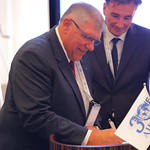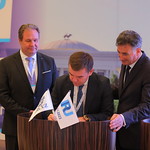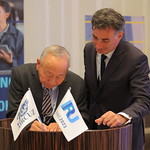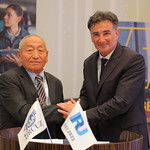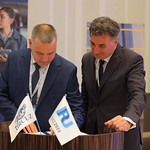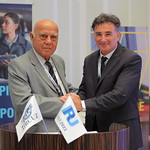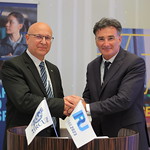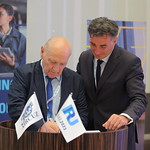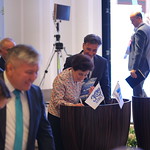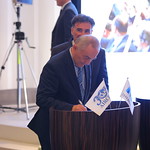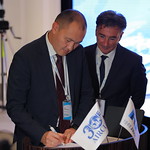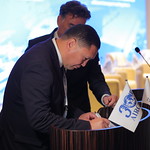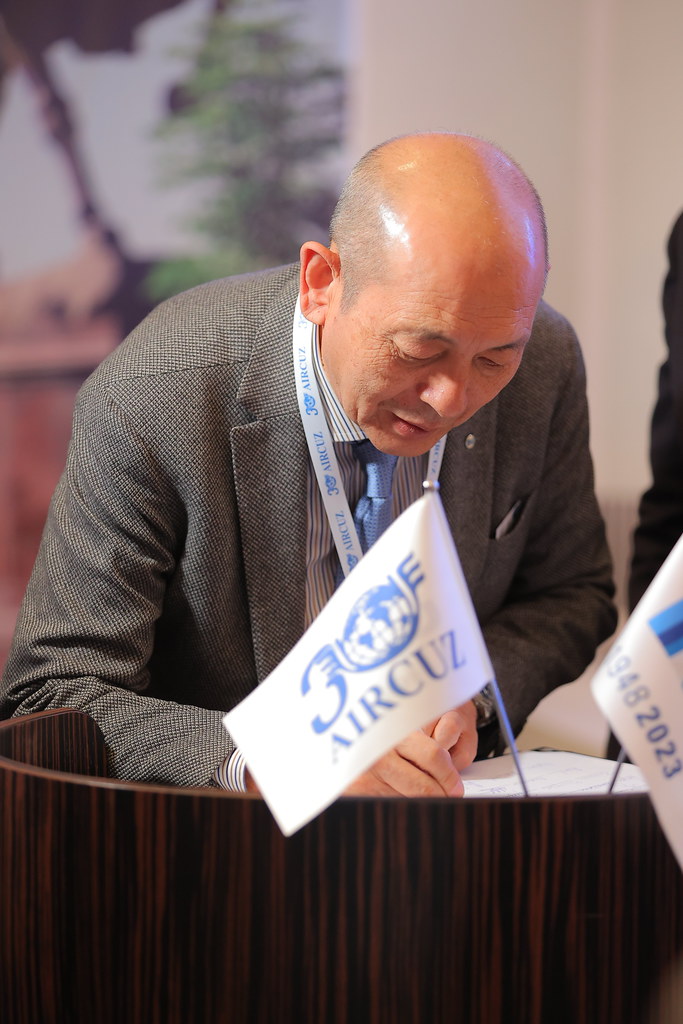Industry leaders, development organisations and financial institutions from 30 countries gathered in Uzbekistan for a timely regional conference on trade and transit developments.
Regional connectivity, transit along multimodal east-west and north-south corridors, digitalisation, and chronic driver shortages topped the agenda at a key regional road transport conference in Tashkent.
Organised by the Association of International Road Carriers of Uzbekistan (AIRCUZ), in partnership with IRU and the Ministry of Transport of Uzbekistan, the event also marked IRU’s 75th anniversary in the region.
Opening the conference, IRU President Radu Dinescu said, “We’re meeting today at the very heart of the Ancient Silk Road.
“Uzbekistan may be a double landlocked country, and the entire region may be full of landlocked countries, but your geographical location is as important now as it was in ancient times, straddling critical north-south and east-west crossroads and connecting the world’s trade and economic powerhouses.”
In his welcome address, AIRCUZ Chairman Sanjar Pulatov said, “At the heart of our work in Uzbekistan and the larger area is, of course, the TIR system, the United Nations’ longest continuous public-private partnership.”
“In this region, as in others, TIR continues to play an important role facilitating trade and transport while maintaining the security and transparency of cross-border shipments,” he added.
Road transport services are crucial for economic and social development, driving prosperity, trade, social inclusion, and, ultimately, peace.
However, rapid technological advances, geopolitical uncertainty and the climate crisis are now redefining road transport operations worldwide.
Key industry challenges
The main plenary’s speakers addressed the resilience of supply chains in times of crisis, highlighting the need for regional coordination and cooperation to rebuild trust across the logistics chain.
A session with international financial institutions and development partners discussed investments in both hard and soft solutions to better link Central Asia with global markets. Countries, especially landlocked developing countries, cannot achieve sustainable development without robust, multimodal transport corridors and reliable infrastructure.
Disruption to trade and transport links have impacted many corridors across the region, increasing pressure on already congested borders. Investment in hard infrastructure must be coupled with soft infrastructure – the processes, rules and services that support efficient transport.
During a session on professional excellence, transport companies shared their experiences implementing RoadMasters, IRU’s risk and talent management solution, to optimise operations and address performance gaps.
Speakers outlined how RoadMasters had helped them to improve road safety and HSE (health, safety and environment) performance, as well as lowering driver turnover and enhancing driver retention.
Another panel focused on the chronic and serious global shortage of drivers. Investment in infrastructure, vehicles and hardware is important but focus on people and their professional qualification is paramount to guarantee safe and sustainable transport.
Investing in people is essential to reach transport efficiency as well as road safety and industry decarbonisation objectives.

